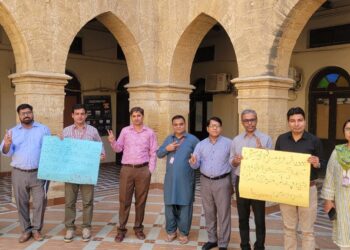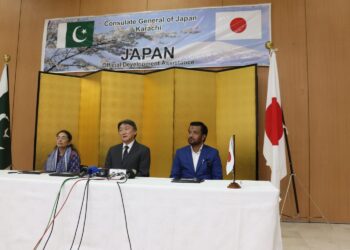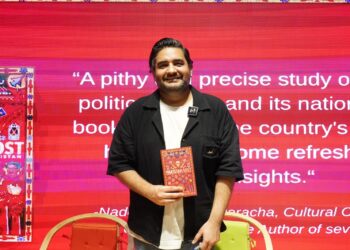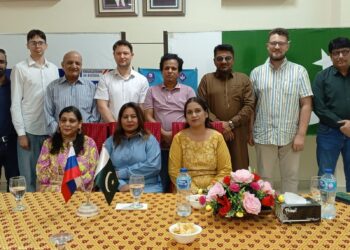The event aims to revisit Quaid-e-Azam
Muhammad Ali Jinnah’s ideals of religious
freedom, unity, and equal citizenship
Staff Reporter

Karachi: Ziauddin University hosted the 24th edition of its signature series ZU Dialogues under the theme “Jinnah’s Vision of Pakistan: Interfaith Harmony – Faith, Freedom & the Nation.” The event brought together scholars, community leaders, educators, and students to revisit Quaid-e-Azam Muhammad Ali Jinnah’s ideals of religious freedom, unity, and equal citizenship.
Speakers Call for Unity Beyond Religious Labels
Dr. Ramesh Kumar Vankwani, Patron-in-Chief of the Pakistan Hindu Council, urged the youth to rise above sectarian identities. “When you graduate, see yourself not as part of a majority or minority, but as a Pakistani. That’s how we truly honor Quaid’s vision,” he said.
Amir Shahzad, Convener of ZU Dialogues, echoed Jinnah’s famous 1947 address: “You are free to go to your temples, mosques, or any other places of worship in this State of Pakistan.” He emphasized that these words are not merely historical but foundational to Pakistan’s constitutional commitment to religious freedom.

Calls for Curriculum Reforms and Equality
Pastor Ghazala Shafique stressed the importance of including Jinnah’s 1947 Constituent Assembly speech in school curricula. “Faith is personal and should not define our societal status. Christians were instrumental in Pakistan’s creation, and their contributions must be acknowledged,” she said.
Sardar Amar Singh, Chairman of the Pakistan Khalsa Sikh Council, praised initiatives like the Kartarpur Corridor as symbols of unity. “This is the Pakistan Jinnah dreamed of — inclusive, honest, and respectful toward all communities,” he said.

Education, Dialogue, and Tolerance Are Key
Dr. Muzaffar Hussain of Ziauddin University highlighted Islam’s emphasis on mutual understanding and dialogue. Dr. Huma Ghaffar from Aga Khan University pointed out the need for fundamental rights and pluralism to combat extremism.
Former Sindh Education Minister Rana Hussain concluded the session with a call for curriculum reforms that reflect Pakistan’s religious and cultural diversity. “Pluralism is a mindset — it’s about extending the same respect and dignity to others that we desire for ourselves,” she stated.
Earlier, Dr. Pamela Marshall, Dean of Nursing and Midwifery at ZU, reiterated Jinnah’s vision of religious liberty, while Dr. Sumaira Punjwani moderated the event and led an engaging Q&A session that encouraged critical thinking and unity among students.























